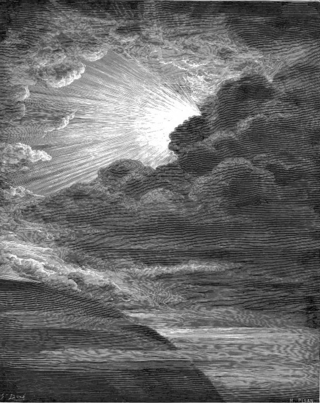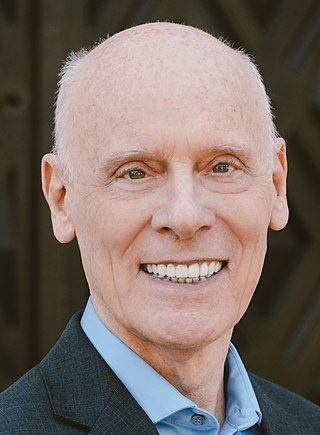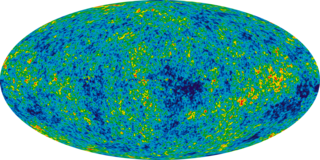
Creationism is the religious belief that nature, and aspects such as the universe, Earth, life, and humans, originated with supernatural acts of divine creation. In its broadest sense, creationism includes a continuum of religious views, which vary in their acceptance or rejection of scientific explanations such as evolution that describe the origin and development of natural phenomena.

The Omphalos hypothesis is one attempt to reconcile the scientific evidence that the Earth is billions of years old with a literal interpretation of the Genesis creation narrative, which implies that the Earth is only a few thousand years old. It is based on the religious belief that the universe was created by a divine being, within the past six to ten thousand years, and that the presence of objective, verifiable evidence that the universe is older than approximately ten millennia is due to the creator introducing false evidence that makes the universe appear significantly older.

Judaism does not centralize authority in any single individual or group. The formulation of principles of faith that are universally recognized by all branches of Judaism remains undefined. There is no central authority in Judaism in existence today - although the Sanhedrin, the supreme Jewish religious court, would fulfill this role if it were re-established. Instead, Judaism's principles of faith remain debated by the rabbis based on their understanding of the sacred writings, laws, and traditions, which collectively shape its theological and ethical framework. The most accepted version in extent is the opinion of Maimonides.

Old Earth Creationism (OEC) is an umbrella of theological views encompassing certain varieties of creationism which may or can include day-age creationism, gap creationism, progressive creationism, and sometimes theistic evolution.

Day-age creationism, a type of old Earth creationism, is an interpretation of the creation accounts in Genesis. It holds that the six days referred to in the Genesis account of creation are not literal 24-hour days, but are much longer periods. The Genesis account is then reconciled with the age of the Earth. Proponents of the day-age theory can be found among both theistic evolutionists, who accept the scientific consensus on evolution, and progressive creationists, who reject it. The theories are said to be built on the understanding that the Hebrew word yom is also used to refer to a time period, with a beginning and an end and not necessarily that of a 24-hour day.

Aish formerly known as Aish HaTorah, is a Jewish educational organization. The focus of Aish is to spread traditional teachings to Jews around the globe utilizing a massive online presence made up of its website Aish.com and various social media channels. In addition to the educational organization there is also a yeshiva and women's seminary as well as several other in-person programs that make up the organization's main campus in Jerusalem.

Creatio ex nihilo is the doctrine that matter is not eternal but had to be created by some divine creative act. It is a theistic answer to the question of how the universe came to exist. It is in contrast to creation ex materia, sometimes framed in terms of the dictum Ex nihilo nihil fit or "nothing comes from nothing", meaning all things were formed ex materia.

Jewish views on evolution includes a continuum of views about the theory of evolution, experimental evolution, the origin of life, the age of the universe, and theistic evolution. Today, many Jewish people accept the theory of evolution and do not see it as incompatible with traditional Judaism, reflecting the emphasis of prominent rabbis such as the Vilna Gaon and Maimonides on the ethical rather than factual significance of scripture.

Genesis 1:3 is the third verse of the first chapter in the Book of Genesis. In it God made light by declaration: God said, 'Let there be light,' and there was light. It is a part of the Torah portion known as Bereshit.

Genesis 1:4 is the fourth verse of the first chapter of the Book of Genesis. It is the response to God's command in verse 3, "Let there be light." It is part of the Genesis creation narrative within the Torah portion Bereshit. The verse states that the light was good, and that God divided or separated the light from the darkness. It has been interpreted in different ways, and illustrated by artists such as Michelangelo.

Hugh Norman Ross is a Canadian astrophysicist, Christian apologist, and old-Earth creationist.
Cyril Domb FRS was a British-Israeli theoretical physicist, best known for his lecturing and writing on the theory of phase transitions and critical phenomena of fluids. He was also known in the Orthodox Jewish world for his writings on science and Judaism.

Allegorical interpretations of Genesis are readings of the biblical Book of Genesis that treat elements of the narrative as symbols or types, rather than viewing them literally as recording historical events. Either way, Judaism and most sects of Christianity treat Genesis as canonical scripture, and believers generally regard it as having spiritual significance.

Since the emergence of the Big Bang theory as the dominant physical cosmological paradigm, there have been a variety of reactions by religious groups regarding its implications for religious cosmologies. Some accept the scientific evidence at face value, some seek to harmonize the Big Bang with their religious tenets, and some reject or ignore the evidence for the Big Bang theory.
The Pressburg Yeshiva, was the largest and most influential Yeshiva in Central Europe in the 19th century. It was founded in the city of Pressburg, Austrian Empire by Rabbi Moshe Sofer and was considered the largest Yeshiva since the time of the Babylonian Talmud.
Denah Weinberg was an Orthodox Jewish Rebbetzin and founder and dean of EYAHT College of Jewish Studies for Women in Jerusalem. EYAHT has over 2,000 alumnae. She was also a speaker on women's issues in Israel and abroad, and published several essays in Jewish women's anthologies. She was married to Rabbi Noah Weinberg, founder of Yeshivat Aish HaTorah. She died in Jerusalem on March 12, 2023.
Divine providence is discussed throughout rabbinic literature, by the classical Jewish philosophers, and by the tradition of Jewish mysticism.
The Trotter Prize is awarded at Texas A&M University and is part of an endowed lecture series. It is awarded "for pioneering contributions to the understanding of the role of information, complexity and inference in illuminating the mechanisms and wonder of nature" and includes The Trotter Lecture which "seeks to reveal connections between science and religion, often viewed in academia as non-overlapping, if not rival, worldviews.
Ayin is an important concept in Kabbalah and Hasidic philosophy. It is contrasted with the term Yesh. According to kabbalistic teachings, before the universe was created there was only Ayin, the first manifest Sephirah, and second sephirah Chochmah (Wisdom), "comes into being out of Ayin." In this context, the sephirah Keter, the Divine will, is the intermediary between the Divine Infinity and Chochmah. Because Keter is a supreme revelation of the Ohr Ein Sof, transcending the manifest sephirot, it is sometimes excluded from them.
Although biological evolution has been vocally opposed by some religious groups, many other groups accept the scientific position, sometimes with additions to allow for theological considerations. The positions of such groups are described by terms including "theistic evolution", "theistic evolutionism" or "evolutionary creation". Of all the religious groups included on the chart, Buddhists are the most accepting of evolution. Theistic evolutionists believe that there is a God, that God is the creator of the material universe and all life within, and that biological evolution is a natural process within that creation. Evolution, according to this view, is simply a tool that God employed to develop human life. According to the American Scientific Affiliation, a Christian organization of scientists:
A theory of theistic evolution (TE) — also called evolutionary creation — proposes that God's method of creation was to cleverly design a universe in which everything would naturally evolve. Usually the "evolution" in "theistic evolution" means Total Evolution — astronomical evolution and geological evolution plus chemical evolution and biological evolution — but it can refer only to biological evolution.








